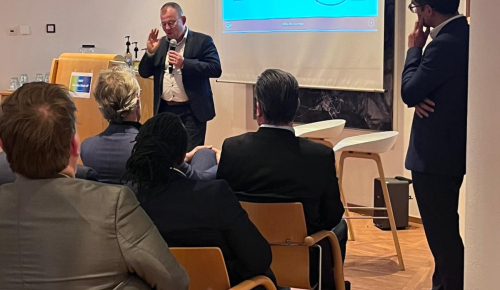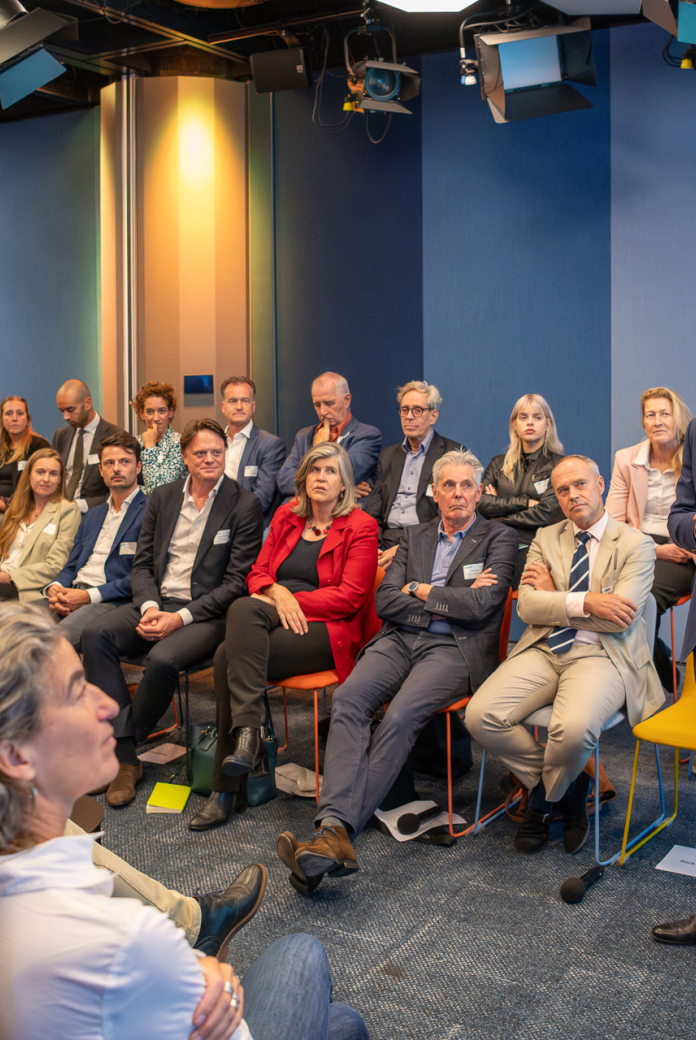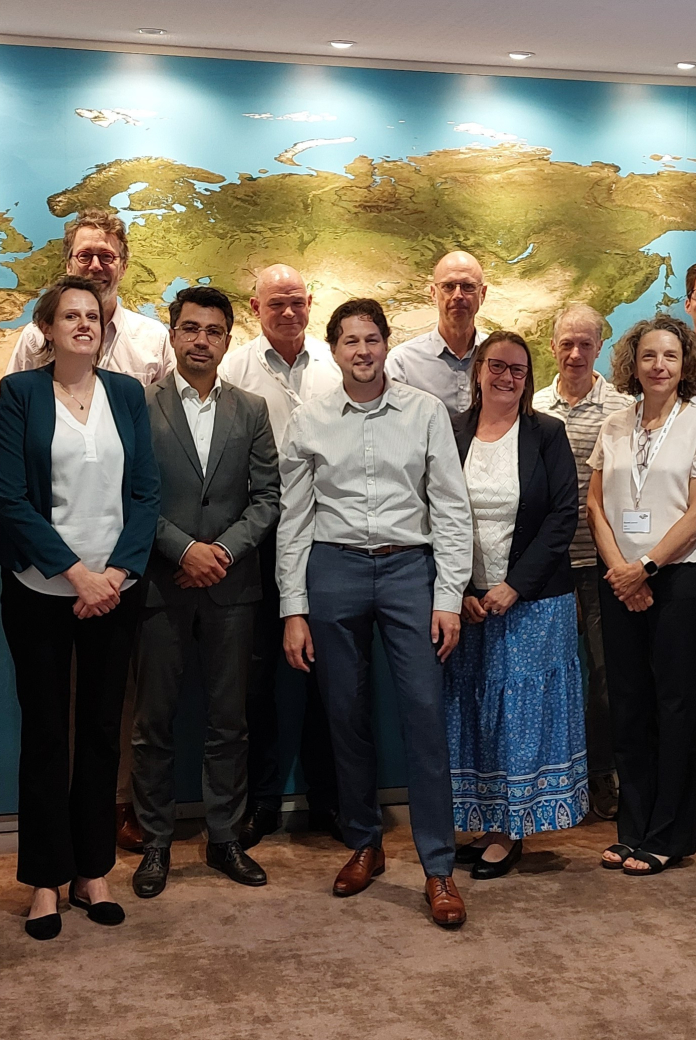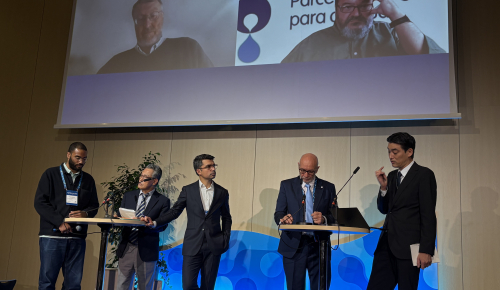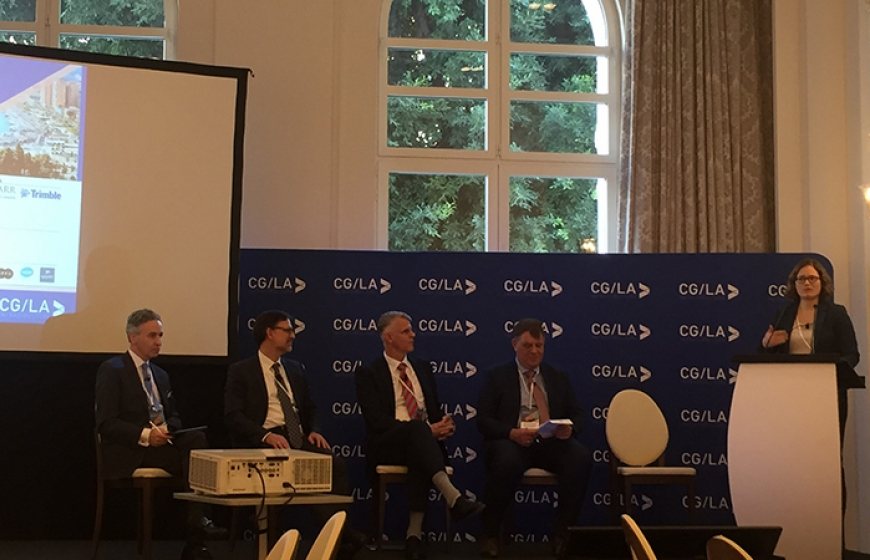
The Netherlands Water Partnership (NWP) proudly co-hosted the ‘Bridging the Financial Gap for Water Infrastructure Development’ panel discussion at the Europe, Eurasia and Southern & Eastern Mediterranean Strategic Infrastructure Leadership Forum. The Forum is currently underway (11 to 13 December) at Malaga in Spain.
Globally, there is an estimated financing gap of USD 1.2 trillion between 2016 and 2030 for the development and maintenance of water infrastructure; dealing with additional challenges related to climate change; and building the needed resilience to violent weather events, water scarcity and floods. This was the context within which Mr Jan van Schoonhoven, Senior Advisor Infrastructure and Financing at the Netherlands Ministry of Infrastructure and Water Management opened the discussion session. He posed questions such as: what are the barriers and opportunities in the region to secure finance for water infrastructure and investments; what are ways to better understand the value of water and who is paying for it; and how can the early involvement of financial expertise in water projects help?
Public-private financing gap
In his intervention, Mr Matthew Jordan Tank, Director of Sustainable Infrastructure Policy and Project Preparation at the European Bank for Reconstruction and Development (EBRD), presented the Green Cities initiative which aims to create a more sustainable future for cities and their residents. He explained that when identifying infrastructure projects, EBRD’s Green Cities Action Plans look holistically at the needs of the city rather than at the ideal conditions for the private finance sector. Consequently, for some projects to become bankable for the private sector, the cities need to be willing to take on a certain degree of risk as outsourcing them entirely does not attract the needed investment. With this in mind, Mr Tank also highlighted that much of EBRD’s work is to help bridge the financing gap by providing training and capacity building at national government and city level. The training is intended to both educate on the need to take and mitigate risks in bridging the financing gap, and to create legacy teams that can procure and manage projects successfully.
Bankability of water projects
Mr Hein Gietema, Strategic Advisor on Finance for Water at NWP, mentioned that the water sector is not attractive enough yet to mobilise the amounts of (private) money that is needed to meet global challenges. While the water sector traditionally focuses on technology, infrastructure and capacity building, there is not enough attention to the bankability of new projects. The lack of well-structured water projects with clearly defined investment risks has not helped project developers access the needed capital, he added.
Mr Gietema emphasised the need to help identify solid business cases for water projects and to structure these projects in a way that is attractive to the financial sector. He also presented two innovative, international NWP ‘Finance for Water’ initiatives to increase the financial feasibility of water projects and ensure that more water projects reach financial close: the Water Finance Facility and the Kenya Innovative Finance Facility for Water (KIFFWA). Both facilities provide capital for project development and financial expertise to set up investable water initiatives. By attracting new forms of capital, NWP is striving to decrease the sector's dependence on public funding to ensure that more water projects reach financial close, are completed and are maintained sustainably.
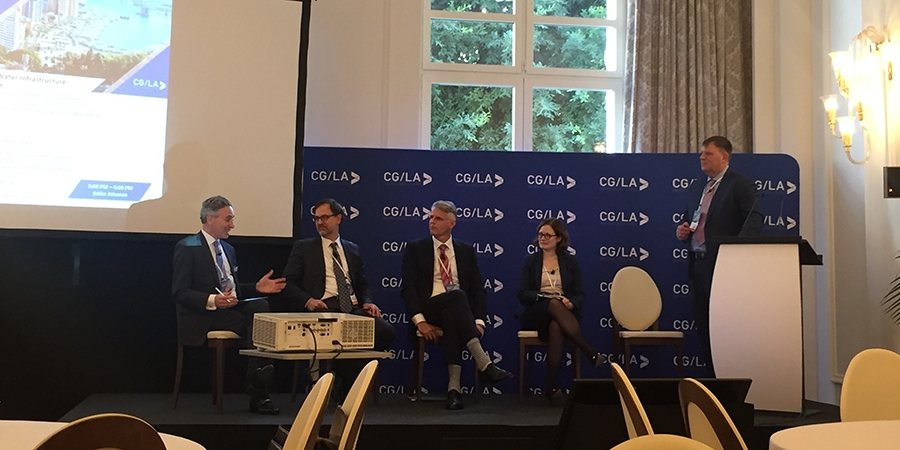
Financial expertise
In turn, Mr Mohsen Mortada, President and CEO of the Cole Engineering Group, provided a consulting-engineering perspective to project development and pointed out that the involvement of financial expertise during the project preparation phase is crucial if more water projects are to be implemented. The technical and legal aspects of projects are often taken care of at an early stage but getting the finances right in the preparation phase is difficult, he added. From a risk management perspective, including financial expertise at an early stage of the project can help to better identify and reduce risks. In that respect, Mr Mortada stated that there is no globally recognised standard of doing financial due diligence, or rather that there is no global recognised qualification of what ‘bankable’ means. He followed his statement with examples of projects that have failed because of the lack of financial expertise.
Full-service solutions
Ms Andrea Chao, Head of Projects and Construction at the law firm Simmons & Simmons, discussed five challenges that water related projects often face: time constrains, budget limitations, construction work in densely populated areas, brownfield sites and limited technical knowledge of regulators. Then, she presented three possible solutions: alliances, early contractor involvement and public-private partnerships, and went into more detail on the concept of Design, Build, Finance and Maintain (DBFM) contracts. These are a form of public-private partnership that governments use for building infrastructure projects. Ms Chao explained that full-service solutions allow companies to look at the lifetime of a project from the design phase until potentially even decommissioning. In doing so, they optimise the entire life cycle of projects. She also referred to the question on how to find the right partner, focusing on looking at experience, solutions and pricing. One way of doing so is by using competitive dialogue.
Top 100 projects
The Strategic Infrastructure Leadership Forum saw the presentation of the first Strategic 100 Europe, Eurasia and Southern & Eastern Mediterranean Infrastructure Projects report. This report identifies projects that are critical to countries’ futures and that are ready for development. NWP provided support towards the development of this report and ensured that water and climate adaptation projects are included. In total, 14 of these projects valued at USD 4.9 billion are from the water and waste water sector. A list of these top 100 projects can be downloaded at the Forum’s site.


